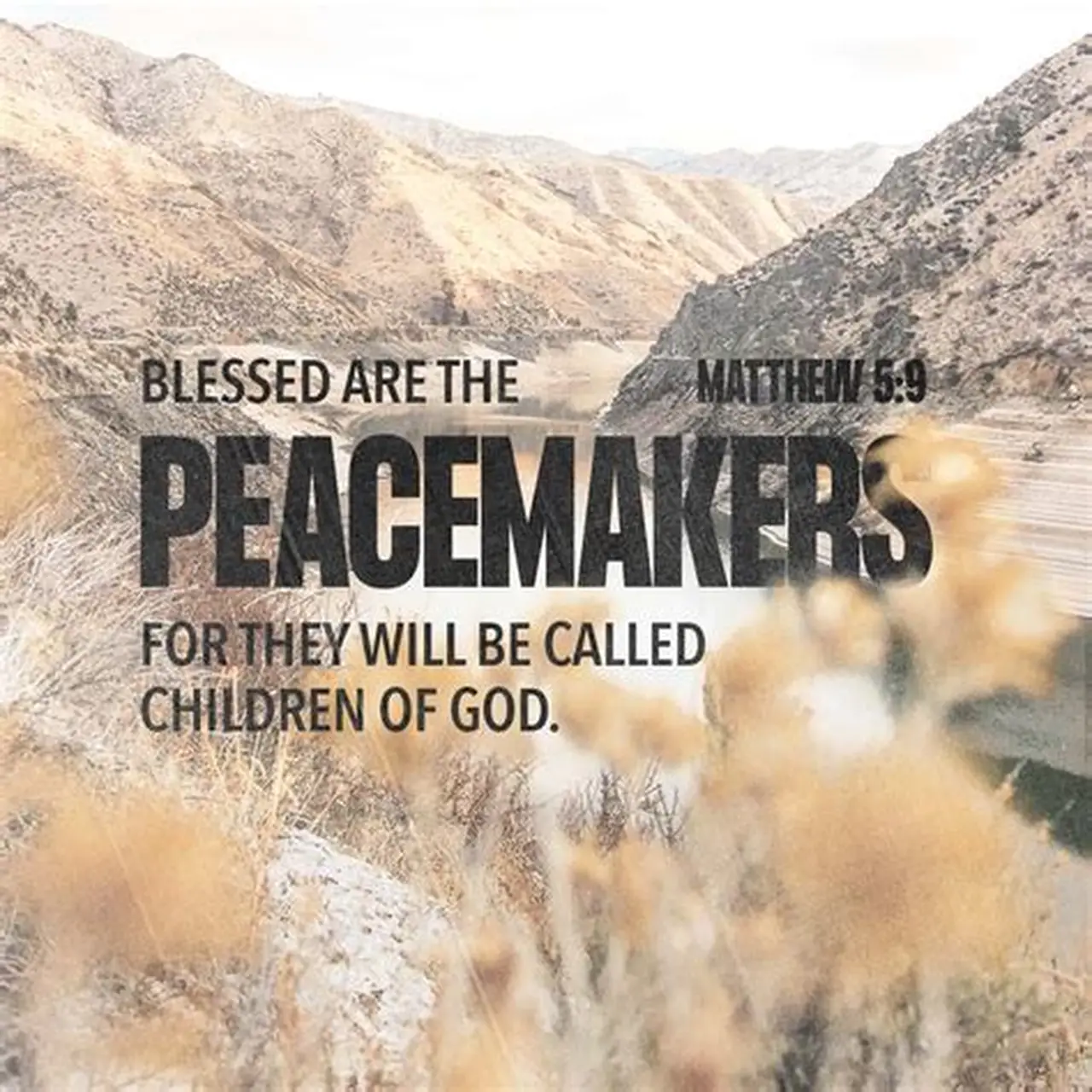THE SEED
“Blessed are the peacemakers: for they shall be called the children of God.” Matthew 5:9 (KJV)
In a world constantly shaken by chaos, conflict, and division, believers are called to stand out; not just as people who avoid strife, but as true peacemakers. We are to reflect the very nature of Christ, who is the Prince of Peace, and carry His peace into every environment we enter. Being a peacemaker is not a passive trait. It requires intentional living, fostering reconciliation, extending forgiveness, and walking in love even when it’s uncomfortable. Paul encourages us in Romans 12:18, “If it be possible, as much as lieth in you, live peaceably with all men.” This scripture reminds us that peace begins with us. We may not control the actions of others, but we can choose how we respond. We must let the peace of God rule in our hearts. That means allowing the presence of Christ to dominate our thoughts, emotions, and decisions. When peace rules us internally, it will be evident externally in our words, relationships, and influence. Peace is not just a feeling; it is a powerful testimony. As carriers of Christ’s peace, we model His nature and draw others to His calming presence. The more we yield to His Spirit, the more our lives become instruments of healing and unity in a broken world.
BIBLE READING: Romans 12:14–21
PRAYER: Lord, let Your peace rule in my heart. Make me a true peacemaker and a reflection of Your presence wherever I go. Help me walk in love and spread Your peace to all around me. Amen.
ÌPÈ LÁTI JÉ OKÙNFÀ FÚN ÀLÀÁFÍÀ
“Alabukún-fun li awọn onilaja: nitori ọmọ Ọlọrun li a o ma pè wọn.” Mátíù 5:9
Nínú ayé tí ìdàrúdàpọ̀, ìforígbárí, àti ìpínyà ń mì nígbà gbogbo, a pè àwọn onígbàgbọ́ láti dúró ṣinṣin; Kì í ṣe gẹ́gẹ́ bí ẹni tí ń yẹra fún ìjà, ṣùgbọ́n gẹ́gẹ́ bí olùwá àlàáfíà tòótọ́. A nilati ṣe afihan iwa-ara ti Kristi gan-an, ẹni ti o jẹ Ọmọ-alade Alaafia, ki a si gbe alaafia Rẹ sinu gbogbo ayika ti a wọ. Jije oniwa- alaafia kii ṣe iwa apanirun. O nilo igbesi aye imotara, imuduro ilaja, jijẹ idariji, ati ririn ni ifẹ bi ko tile rọrun. Pọ́ọ̀lù gba wa níyànjú nínú Róòmù 12:18 pé: “Bí ó bá ṣeé ṣe, níwọ̀n bí ó ti wà nínú yín, ẹ máa gbé ní àlàáfíà pẹ̀lú gbogbo ènìyàn.” Ẹsẹ Ìwé Mímọ́ yìí rán wa létí pé àlàáfíà bẹ̀rẹ̀ láti ọ̀dọ̀ wa. A lè má lè darí ìsesí elòmíràn, sùgbón a lè yan bi a o tí fèsì. A gbọ́dọ̀ jẹ́ kí àlàáfíà Ọlọ́run jọba nínú ọkàn wa. Ìyẹn túmọ̀ sí fífàyè gba wíwàníhìn-ín Kristi láti ṣàkóso ìrònú, ìmọ̀lára, àti àwọn ìpinnu wa. Nigbati alaafia ba nṣakoso wa ni inu, yoo han gbangba ni ita, ninu awọn ọrọ wa, awọn ibasepo, ati ipa wa. Àlàáfíà kì í ṣe ìmọ̀lára lásán; o jẹ ẹri alagbara. Gẹ́gẹ́ bí àwọn tí ń ru àlàáfíà Krístì, a ṣe àwòkọ́ṣe, àwòkọ́ṣe rẹ̀ a sì fa àwọn ẹlòmíràn lọ sí wíwàníhìn-ín rẹ̀ tí ó balẹ̀. Bi a ṣe nfi ara wa fun Ẹmi Rẹ diẹ sii, ni igbesi aye wa di awọn ohun elo imularada ati isokan ni agbaye ti o bajẹ.
BIBELI KIKA: Róòmù 12:14–21
ADURA: Oluwa, je ki alafia Re ki o joba li okan mi. Ṣe mi ni alaafia otitọ ati irisi ti wiwa Rẹ nibikibi ti mo lọ. Ran mi lowo n‘nu ife Ki o si tan alafia Re si gbogbo ayika mi. Amin.
